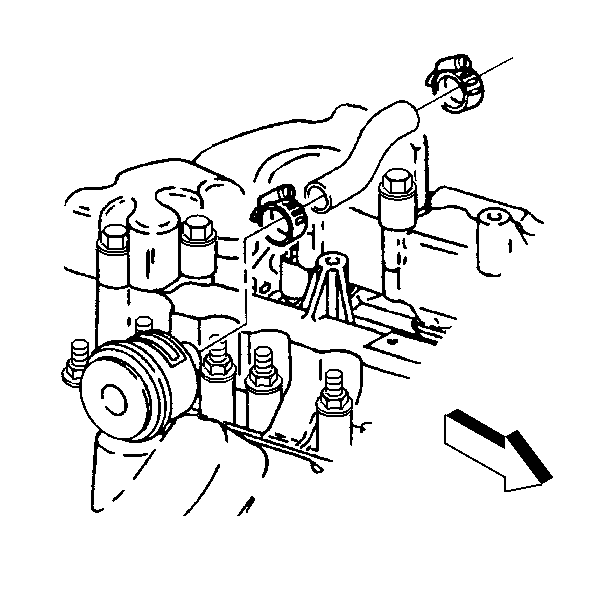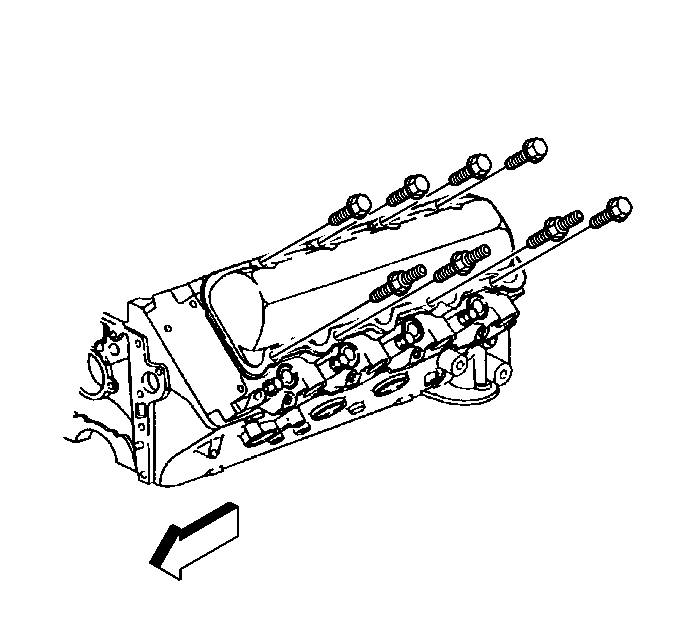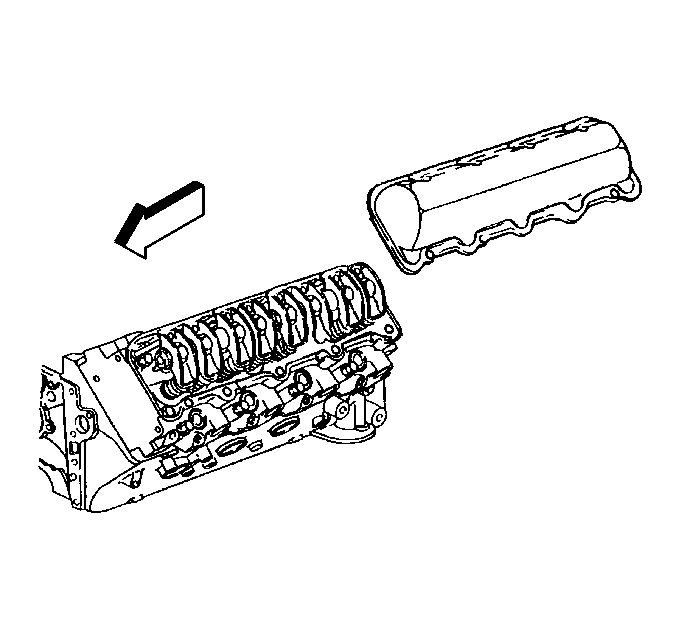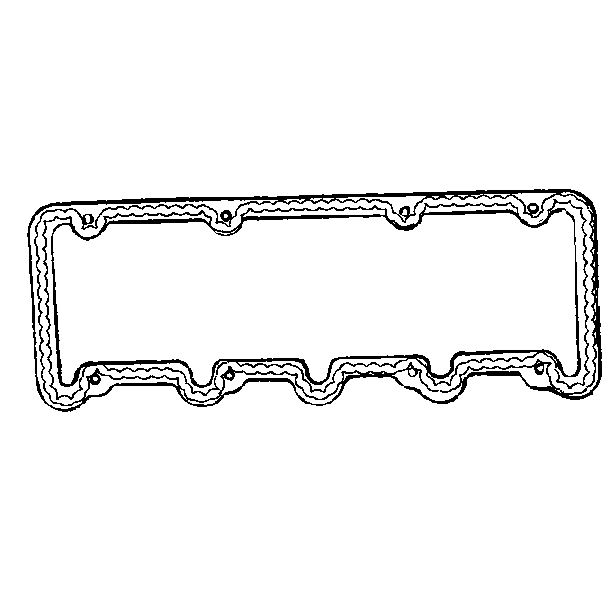Removal Procedures
- Disconnect the battery negative cables from the batteries.
- Remove the upper intake manifold from the turbocharger. Refer to Intake Manifold Replacement .
- Remove the lower intake manifold from the cylinder head. Refer to Intake Manifold Replacement .
- Mark the fuel line retaining clips and the stud in order to ensure proper reinstallation.
- Remove the fuel injection lines from the fuel nozzles.
- Remove the engine oil level indicator and tube from the engine block. Refer to Oil Level Indicator and Tube Replacement .
- Remove the transmission oil level indicator and tube.
- Remove the fuel return line clip at the valve rocker arm cover stud.
- Remove the wiring harness at the valve rocker arm cover and move aside (left side).
- Remove the electrical connectors at the valve rocker arm cover and move aside (left side).
- Remove the rear generator support bracket.
- Remove the valve rocker arm cover bolts.
- Remove the valve rocker arm cover from the cylinder head.
- Clean the oil and grease from the sealing surfaces on the valve rocker arm and the cylinder head. Use a suitable solvent. Refer to Cylinder Head Cleaning and Inspection .

| • | For the front battery, refer to Battery Cable Replacement in Engine Electrical. |
| • | For the auxiliary battery, refer to Battery Cable Replacement in Engine Electrical. |
| • | Remove the CDR valve and hose (right side). |
Important: Do not bend the fuel injector lines in order to ease in the removal of the valve rocker arm cover.


Notice: Prying on the valve rocker arm cover may cause damage to the sealing surfaces. Use a block of wood against the side of the valve rocker arm cover and strike with a hammer in a sideways direction to shear the RTV sealant.
Installation Procedure
- Apply a 5 mm (3/16 in) bead of RTV sealant GM P/N 12345739 to the valve rocker arm covers, inboard of the bolt holes. The sealer must be wet to the touch when the bolts are tightened.
- Install the valve rocker arm cover to the cylinder head.
- Install the valve rocker arm cover bolts.
- Install the fuel injection lines and clips.
- Install the wiring harness and all the electrical connectors at the valve rocker arm cover from the clips and move aside (left side).
- Install the engine oil level indicator and tube. Refer to Oil Level Indicator and Tube Replacement .
- Install the transmission oil level indicator tube and bracket.
- Install the lower intake manifold to the cylinder head. Refer to Intake Manifold Replacement .
- Install the CDR valve and hose.
- Install the rear generator support bracket.
- Install the upper intake manifold to the lower intake manifold. Refer to Intake Manifold Replacement .
- Connect the battery negative cables from the batteries.
Notice: Do not allow the RTV sealant to enter any blind threaded hole. RTV sealant that is allowed to enter a blind threaded hole can cause hydraulic lock of the fastener when the fastener is tightened. Hydraulic lock of a fastener can lead to damage to the fastener and/or the components. Hydraulic lock of a fastener can also prevent the proper clamping loads to be obtained when the fastener is tightened. Improper clamping loads can prevent proper sealing of the components allowing leakage to occur. Preventing proper fastener tightening can allow the components to loosen or separate leading to extensive engine damage.



Notice: Use the correct fastener in the correct location. Replacement fasteners must be the correct part number for that application. Fasteners requiring replacement or fasteners requiring the use of thread locking compound or sealant are identified in the service procedure. Do not use paints, lubricants, or corrosion inhibitors on fasteners or fastener joint surfaces unless specified. These coatings affect fastener torque and joint clamping force and may damage the fastener. Use the correct tightening sequence and specifications when installing fasteners in order to avoid damage to parts and systems.
Tighten
Tighten the bolts to 22 N·m (16 lb ft).

| • | For the front battery, refer to Battery Cable Replacement in Engine Electrical. |
| • | For the auxiliary battery, refer to Battery Cable Replacement in Engine Electrical. |
